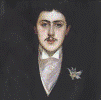Modern Languages and Literatures, Department of

French Language and Literature Papers
Document Type
Article
Date of this Version
January 2001
Abstract
First impressions seem to suggest little more than a casual link between Othello and the film Les Enfants du Paradis despite multiple references to Shakespeare’s tragedy in Jacques Prévert’s screenplay. Many glaring differences present themselves with respect to both works. The Elizabethan drama appears to have little in common with a film made and released in France during the Occupation that focuses on a troupe of actors, a petty criminal, and an aristocrat in early nineteenth-century Paris. Yet, Prévert’s numerous appropriations of Shakespeare are crucial to the film’s meaning. Edward Baron Turk, who mentions the film’s allusions to Shakespeare, argues that “parallels” between the two narratives are “recognizable,” and briefly outlines these similarities with respect to character. Turk rightly contends that “variants” (230) of Othello are to be found in es Enfants du Paradis, but it is not his aim to analyze them at any great length. By contrast, my goal is to examine why Prévert chose to place such emphasis on Othello, and to probe the ways in which Prévert and director Marcel Carné both imitate and deviate from Shakespeare in order to explore issues such as character motivation, plot adaptation, and the aesthetic and historical contexts in which the film is situated.


Comments
Published in COMPARATIVE LITERATURE STUDIES, Vol. 38, No. 1, 2001. Copyright © 2001 The Pennsylvania State University, University Park, PA.